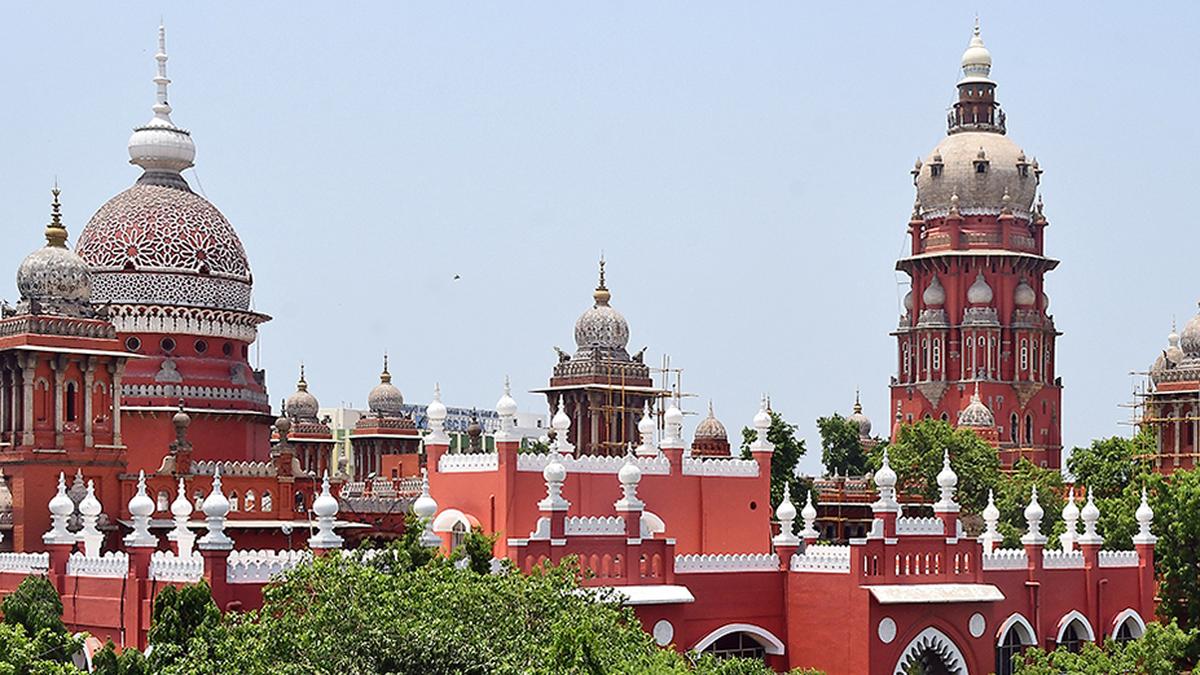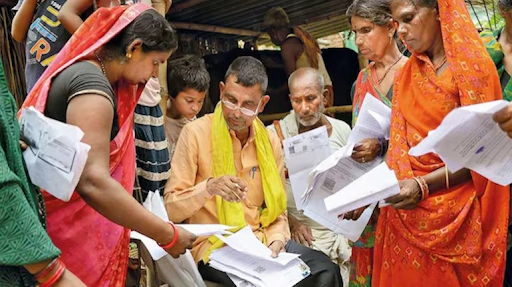



The SC/ST (Prevention of Atrocities) Act protects Scheduled Castes/Tribes from violence. A Madras High Court ruling now mandates immediate FIRs, denying preliminary inquiries and anticipatory bail. The Act, which sets strict penalties and aids victims, faces challenges like under-reporting, investigation delays, and low conviction rates.

Copyright infringement not intended
Picture Courtesy: THE HINDU
The Madras High Court has ruled that the police cannot conduct preliminary enquiries into complaints about cognisable offences under the Scheduled Castes and Scheduled Tribes (Prevention of Atrocities) Act of 1989, and the First Information Reports (FIR) should be filed against the suspects immediately.
It protects members of Scheduled Castes (Dalits) and Scheduled Tribes (Adivasis) from various forms of discrimination, violence, and humiliation.
The Act's main goals are:
The Act lists various actions that count as "atrocities" under Section 3. These are crimes committed against SC/ST individuals with the intent to humiliate, injure, or discriminate against them because of their caste or tribal identity.
Examples of Atrocities
The Act prescribes strict penalties for those who commit atrocities. It mandates minimum imprisonment terms. For example, many offenses carry a minimum of six months to five years in prison, with fines. If someone commits an atrocity again after being previously convicted, they face even harsher, enhanced punishments.
The Act mandates the establishment of "Special Courts" and "Exclusive Special Courts" specifically for trying cases under this law.
The Act states that a person accused of committing an atrocity under this law cannot obtain "anticipatory bail" (pre-arrest bail).
The Act says, when a complaint is made about an atrocity, the police must register a First Information Report (FIR) immediately. They cannot conduct a "preliminary inquiry" first to decide if the complaint is true before registering the FIR.
If a public servant neglects their duties related to the Act (for example, refusing to register an FIR or delaying an investigation), they can be punished with a minimum of six months imprisonment.
Financial Aid => Victims are entitled to financial aid for medical treatment, support during legal proceedings, and for rebuilding their lives.
Rehabilitation => The Act aims to provide comprehensive support, which can include temporary housing, food, and other necessities to help victims recover from the trauma and integrate back into society.
The 2015 Amendment strengthened the Act:
The 2018 Amendment was a crucial legislative response to a Supreme Court judgment.
Under-reporting of crimes => Many crimes against SC/ST individuals go unreported due to fear of retaliation, lack of trust in the justice system, or social pressure.
Delays in investigation & prosecution => Even when reported, investigations can be slow, and court cases often drag on for years, delaying justice.
Low conviction rates => Despite the strictness of the law, the number of people convicted for atrocities remains relatively low.
By the end of 2022, investigation was pending in 17,166 cases related to SC.
In 2022, the conviction rate dropped to 32.4% from 39.2% in 2020.
Misuse allegations => However, official reports (like those from the National Crime Records Bureau) and studies indicate that the percentage of false cases is very small.
Societal biases & caste prejudices => Deep-rooted societal biases and caste prejudices continue to exist, affecting how police, lawyers, and even parts of the judiciary perceive and handle these cases.
Nearly 97.7% of all cases of atrocities against Scheduled Castes in 2022 were reported from 13 States, with Uttar Pradesh, Rajasthan and Madhya Pradesh recording the highest number of such crimes.
In 2022, Of the 9,735 cases registered under the law for STs, Madhya Pradesh reported the highest number at 2,979 (30.61%), Rajasthan had the second highest number of cases at 2,498 (25.66%).
Public awareness & legal literacy => Educate SC/ST communities about their rights and the provisions of the Act, and inform the general public about its importance.
Faster and sensitive investigations => Train police to handle atrocity cases with sensitivity, conduct thorough and timely investigations, and prioritize victim support.
Training for police & judiciary => Provide specialized training to police officers, public prosecutors, and judges on the provisions of the Act and the socio-economic context of caste-based discrimination.
Strengthening victim/witness protection => Implement protection mechanisms for victims and witnesses to ensure they can testify without fear.
Addressing socio-economic disparities => Focus on overall development, education, and economic opportunities for SC/ST communities to reduce their vulnerability.
Inclusive community development => Encourage dialogue and understanding between different communities to break down caste barriers and promote social harmony.
Must Read Articles:
SCHEDULED CASTE SCHEDULED TRIBE
ALLAHABAD HIGH COURT RULING ON SC/ST ACT VIOLATION
Source: THE HINDU
|
PRACTICE QUESTION Q. "Hate speech and social media misinformation fuel caste-based violence." Discuss the challenges of regulating online content to prevent such incidents and suggest a balanced approach. 250 words |
It means specific crimes against SCs/STs, like humiliation, violence, or discrimination, defined by the Act.
The Act explicitly bars anticipatory bail to ensure immediate investigation and justice.
The Act covers crimes committed by non-SC/ST persons against members of SC/ST communities.




© 2026 iasgyan. All right reserved